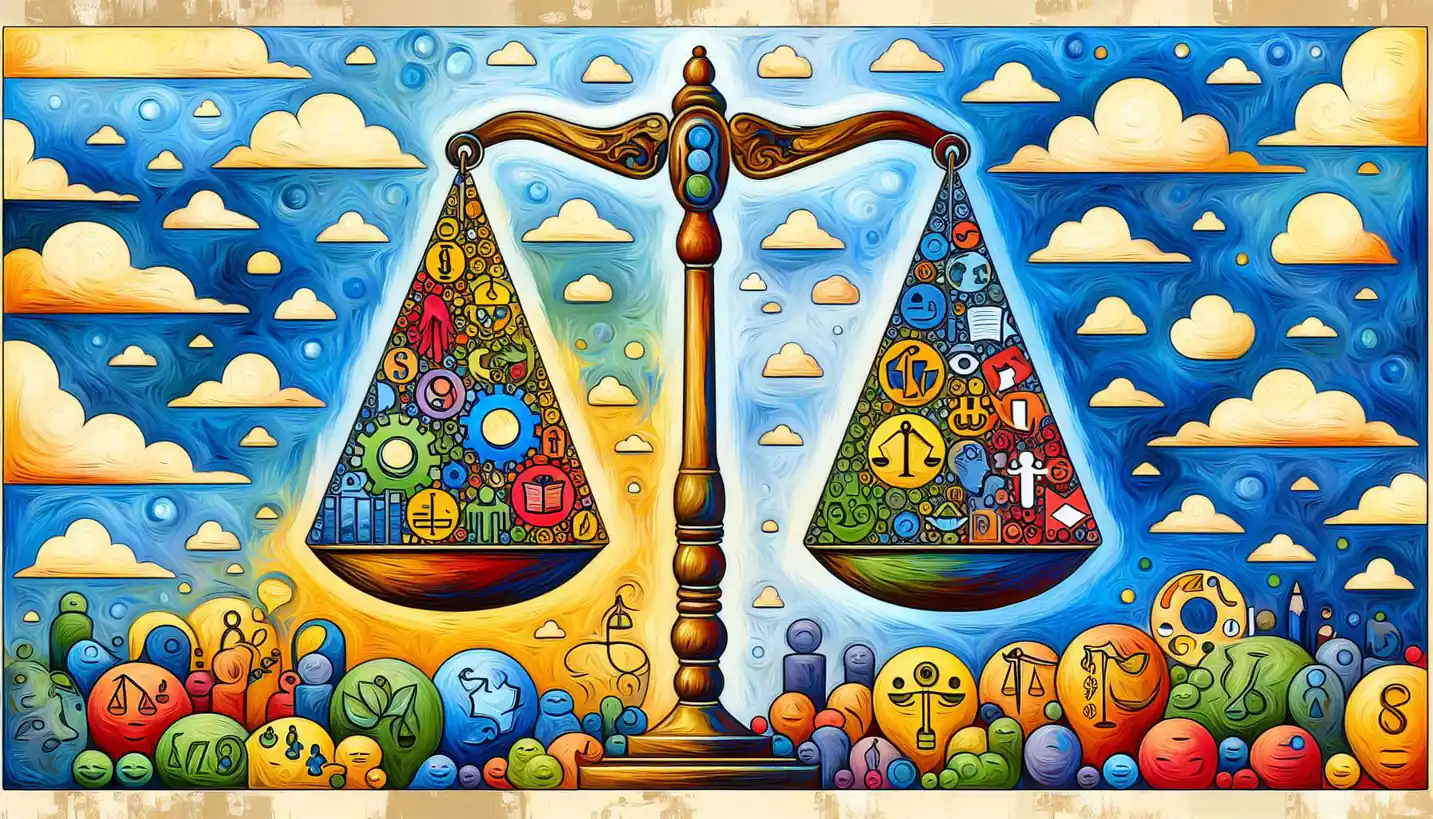· Sociology · 4 min read
Dispute Resolution: Understanding the Sociology of Law in Everyday Conflicts
Dispute resolution in sociology of law examines everyday conflicts and the methods societies use to address them. Explore how legal frameworks manage social tensions.

Disputes are an inevitable part of human life. Whether it’s a disagreement with a neighbor about noise levels or a complex international trade disagreement, resolving disputes is crucial for maintaining harmony. The sociology of law offers us fascinating insights into how societies handle conflicts. So, how does it work in the everyday world?
At its core, dispute resolution involves finding ways to settle disagreements without resorting to violence or ongoing hostility. Societies have developed a range of methods, from informal negotiations to formal legal proceedings, tailored to fit the nature and severity of the dispute.
The Role of Sociology in Law
Sociology looks at how societal factors influence behaviors, norms, and institutions. When we apply sociology to law, we’re digging into how laws are not just rigid rules but reflect cultural values, power dynamics, and social relationships.
Think about it like this: laws are the written version of a community’s beliefs about right and wrong. They’re shaped by history, economic conditions, and even religious influences. But what happens when people don’t agree on those beliefs? That’s where dispute resolution shines.
Different Forms of Dispute Resolution
Let’s explore some methods societies use to handle disputes:
Negotiation: This is the simplest form, where the parties involved in the conflict talk and attempt to reach a mutual agreement. It’s like two friends bickering over who gets the bigger slice of pizza and finally deciding to split it equally.
Mediation: Here, a neutral third party helps those in dispute communicate and find a resolution. Imagine a parent stepping in to help siblings sort out an argument over a toy.
Arbitration: Similar to mediation but with a key difference—the arbitrator makes the final decision, which is usually binding. It’s like having a referee in a sports match who calls the final score.
Litigation: This is the most formal method, involving courts and legal procedures. It’s like going to the principal’s office where rules are strict, and a third party decides based on the school handbook.
Each method has its strengths and weaknesses, and the choice often depends on the cultural backdrop, nature of the conflict, and the relationships between the parties involved.
Cultural Influences on Dispute Resolution
Culture plays a massive role in determining how disputes are resolved. In some cultures, maintaining harmony and relationships might be more important than getting a fair outcome. In others, individual rights and legal correctness are prioritized.
For instance, in community-oriented societies, informal systems like mediation might be preferred. Elders or respected community leaders often step in to guide the discussion, focusing on restoring balance and peace. In contrast, more individualistic cultures might lean towards formal litigation to ensure fairness and clarity.
The Impact of Power Dynamics
Power dynamics deeply influence how disputes are approached and resolved. Consider two parties in a negotiation—if one holds significantly more power, say a large corporation against an individual consumer, the outcome might be skewed unless carefully managed.
Here, sociology helps unearth these underlying dynamics, providing a clearer picture of how and why certain resolutions are reached. For instance, legal aid and community support programs can help balance the scales for those with less power in formal settings.
The Importance of Dispute Resolution
At a broader level, effective dispute resolution is vital for societal stability. When disputes are left unresolved or poorly managed, they can escalate into larger conflicts, affecting entire communities or even nations.
Furthermore, the ability of a society to resolve disputes efficiently and fairly can foster trust in its legal systems. This trust encourages adherence to societal norms and laws, promoting a peaceful coexistence.
Future Directions in Dispute Resolution
In today’s fast-changing world, traditional methods are being challenged and reshaped. Online dispute resolution is gaining traction, especially in areas like e-commerce and international trade. This digital approach offers accessibility and convenience, but it also presents new challenges, such as ensuring security and fairness without face-to-face interactions.
Moreover, as societies become more diverse, integrating culturally sensitive practices in dispute resolution is gaining recognition. Understanding and respecting cultural differences can lead to more effective and respectful conflict management.
Conclusion
The sociology of law offers a lens through which we can see the intricate dance of culture, power, and legal norms in dispute resolution. From simple squabbles to complex legal battles, how disputes are managed can tell us a lot about the society itself. As we continue to innovate and adapt, finding ways to resolve conflicts that respect diversity and maintain justice will remain at the heart of societal progress.
In exploring these methods and their cultural contexts, we gain a deeper appreciation for the nuanced role of law in shaping our daily interactions and ensuring a cohesive society.



